Today, I’m sharing a post from an earlier iteration of SOUND + SPIRIT, which I wrote alongside a single I released entitled Ulysses, which you can play at the end of this post. Thanks friends and I hope you enjoy!
Come, my friends,
‘Tis not to late to seek a newer world.
Push off, and sitting well in order smite
The sounding furrows; for my purpose holds
To sail beyond the sunset, and the baths
Of all the western stars, until I die.
So says Ulysses, the aged king of Ithaca in Alfred Lord Tennyson’s rousing eponymous poem. Tennyson presents us, in his dynamic verse, a man of irrepressible desire, whose longing to return to the sea and to the fulfilment it represents, fill us, as readers, with that same spark of hope.
In every new season of our lives, perhaps we are met once more with that old tentative anticipation. Once burned and twice shy, the saying goes; and yet somehow, despite past disappointments, unrealised dreams and engrained frustrations, we can’t help but let that romantic ethos fill us again and press us into cautious expectation for some sense of newness, restoration, and meaningfulness in the days ahead of us. Like Ulysses, we look out over a churning, dancing sea and hear its siren voices calling to us. It swells and crashes upon the cusp of our attention, and our desires rise up toward a hope that whatever hasn’t materialised or coalesced in the past might finally come into being.
Perhaps this time around, out there in the vast domain of the uncharted sea, our desires will not be disappointed.
…
Tennyson had lived, in many senses, a charmed life. The son of an imaginative, well-read Anglican minister, Tennyson and several of his siblings were closely taught by their father, and nourished in their love of literature an poetry from an early age. In time, he attended Cambridge and quickly began to attract the attention of serious literary scholars and critics like Samuel Taylor Coleridge, who saw in the young Tennyson bourgeoning greatness. Eventually, he would receive the Chancellor’s Gold Medal, a high honour at Cambridge, for the excellence of his poetry. For a time, Tennyson might have felt his future to be limitless, full to the brim with possibility.
And then, in an instant, his world turned upside down. Tennyson’s father died suddenly, leaving Tennyson’s mother and nine of his siblings bereft of assistance. As a dutiful son, Tennyson left Cambridge before finishing his degree and returned to care for his family, living in tight quarters and with little recourse to the joy of his prior life.
It must have felt like a cruel trick to Tennyson, to know his capacity, and to see it dripping down the drain, seemingly wasted and unseen. One small consolation for Tennyson was his friend Arthur Hallam, a close companion during his time at Cambridge. Tennyson saw in Hallam a greatness not yet achieved but waiting to be given to the world. No matter the ambiguities of Tennyson’s life, Hallam’s world remained open to possibility, and perhaps Tennyson saw in that open pathway a certain hope. That hope would be even further strengthened by Hallam’s engagement to Tennyson’s sister, Emilia.
Soon, even this hope would be shattered. In September of 1833, Tennyson received the devastating news that Hallam had died suddenly while on holiday on the continent, succombing to a cerebral hemmorrage. His dear friend and future brother-in-law had been torn from the world at only 22 years old.
It was from within this vortext of grief that some of Tennyson’s most significant works would emerge. One of those works, a poem which Tennyson himself claimed contained the fullest dimensions of his grief for Hallam and frustration for that moment in his life, was Ulysses.
…
In Ulysses (Ulysses is the Latin variant of Odysseus), we, the readers, are presented with an aged ruler, long returned from his adventures across the sea in Troy, ruling over an Ithaca for which he has little patience. He is tired, and bored of his life as a King, and he pines after a world long lost to him, a season in which he achieved adventure and conquest. He loathes that he must rule over ‘a savage race, / That hoard, and sleep, and feed, and know not me.’ He laments that he has been condemned ‘To rust unburnish'd, not to shine in use!’ Instead, he fantasises about leaving the whole kingdom to his son, who is faithful and patient; he believes that his son might seek, ‘by slow prudence to make mild / A rugged people, and thro' soft degrees / Subdue them to the useful and the good.’
Ulysses feels the pull of his mortality, the coming of death and old age to bring him to an ignominous end: ‘The long day wanes: the slow moon climbs: the deep / Moans round with many voices’. Suddenly, his eyes brighten, and he looks to us, the reader, in a warm summons to adventure: ‘Come, my friends, / ’Tis not to late to seek a newer world’. The hope of that which lies beyond, which might save him from the immutability of his end, gives him excitement. He will not give in, or give up, even if he must abandon all around him in pursuit of this great destiny: ‘and tho' / We are not now that strength which in old days / Moved earth and heaven, that which we are, we are; / One equal temper of heroic hearts, / Made weak by time and fate, but strong in will / To strive, to seek, to find, and not to yield.’
…
What do we hear in Ulysses’ call? Perhaps we sense in it the same desire that we have in our own hearts, for that which exceeds the bounding lines of our simple lives. Perhaps, like Ulysses, we yearn to know more of the world, to have its depths made open to us, to experience the fulness that life seems to suggest to our inmost selves is there for the taking if only, somehow, we could reach it. Perhaps we have our own experiences of a ‘savage race’, aspects of our lives that seem intractably broken and limiting. Perhaps we imagine, like Ulysses, that the world is simply waiting for us to really fulfil our desires, to push aside everything that binds us, to go the distance and discover the glory awaiting us.
And then, reality comes crashing back in. We see, all too well, the truth of this aged ‘King’: He is stricken with wanderlust and a freedom from responsibility. What he proposes is leaving his elderly wife behind—for a second time, no less. As anyone who knows Ulysses’ legend will be aware, his conquests in earlier life to Troy nearly ended in disaster when his absence left a vacuum which his own courtesans attempted to seize, by trying to win the favours of his wife Penelope while he was away. She, being faithful to Ulysses, waited, certain he would return and set things to rights. For Ulysses to leave now would be to knowingly mock that faithfulness; it would be wanton abandonment. And his admission that his son might tame the wild people of Ithaca shows that he knows, in his heart of hearts, that it is equally within his power to achieve this end, and is simply attempting to elude the obligations required of him in his elevated position as King. Suddenly, we see that his desire for transcendence is no more than a juvenile desire to escape the realities of his life, and the limitations of his world.
…
So what do we make of this sordid, confusing tale? Tennyson himself must have felt that sense of doom and meaninglessness in his own world, the joy so real to him stripped from his life and replaced with the oppressive frustration of caring, day after day, for a family with no prospects. Indeed, it was Tennyson himself who, in his 1850 ode to Hallam, In Memoriam A.H.H., wrote the infamous verse: ‘ What hope of answer, or redress? / Behind the veil, behind the veil.’ Perhaps what Tennyson is telling us is that life is cruel and offers a tantalizing taste toward a transcendence that we can never achieve, teases us with the spectre of an answer that never comes. We are most to be pitied of all creatures, Tennyson seems to indicate, for we are beset with the cruel longing for a transcendence that we can never hope to achieve with any certainty. Desire, Tennyson seems to say, leads only to sadness, despair, and ruin.
Is that all there is, then? Are our desires decievers who only seek to mislead us? Are we condemned to simply live within the drudgeries of our lives and find no peace within them, always beset with an urge toward a transcendence that can never be achieved?
…
In the fourth century, St Augustine of Hippo provided a Christian transposition of one of the most popular philosophies of the time: Neoplatonism. Neoplatonism suggested that there is, at the centre of all things, The One, the unbroken spiritual unity from which all reality springs. All things proceed from The One, and ultimately, the most ideal end is the return to the One, and to spiritual union. Neoplatonism took up earlier forms of Platonism in suggesting that the descent from The One into being, and into creatureliness, involved a diminishing of the highest value. The body, and all its urges, it suggested, is a lower form than the purified, undivided spirituality of The One, and is caught up in base desires. To achieve the fullness of being again is to rebuff desire, to seek higher, spiritual things, and to eschew the lower impulses of the body.
Attempting to help his parishioners stay true to their faith in a time of decadence and spiritual decay, Augustine engaged with neoplatonism and reinterpreted it through Christ. All of life, Augustine held, was a battle of desire; not to suppress desire, but to let our desires be oriented to their ultimate end in God. Augustine came to faith late in life and spent much of his youth seeking wayward desires in various forms of power, especially in the delights of the flesh. These transgressive pursuits ultimately left a trail of broken relationships behind him, and his own heart shattered and confused. Augustine knew all too well the damage of mislead desires, longings aimed at the wrong ends; and yet his answer was not to eschew those desires in a puritanical suppression. These yearnings for transcendence and fulfillment were not abberant because they went too far, but because they were too weak; the ultimate end for which all humans are intended, Augustine affirmed, is a God whose fulness satisfies the desire of every heart.
Desire, Augustine held, was at the heart of faith; because all true desire ultimately seeks the One that is the true end of all longing, God. ‘Our hearts are restless,’ Augustine says in book one of his Confessions, ‘until they find their rest in thee.’ There is one end, and one end only, in which our desires meet their true hope.
…
So how do we, in the midst of our daily struggles and foreshortened dreams, reconcile the distance between the limits our lives present, and the hope our desires promise us? Where is this Christ who allegedly fulfills our deepest longings?
‘Where charity and love are, God is there,’ says the ancient Christian hymn Ubi Caritas. In service, in faithful love, there we find Christ, the lyrics tell us. ‘The love of Christ has gathered us into one. / Let us rejoice in Him and be glad.’ Contrary to what Ulysses suggests, it is not in the fantasies of adventure beyond the sea where we might encounter the meaning toward which our desires gesture, but rather in the very ordinary moments of our choices to love, to serve, and to give. Awaiting us there is the true possibility of a full and meaningful life, a place where our desires, never completely achievable in this world as it is with its suffering and sorrow and trouble, might nonetheless be met with a true heart of love and meaning.
And somehow, in this turn from the greatness beyond us to the small acts of charity before us, the world, ordinary and plain before, is suddenly illuminated with a deeper reality that suffuses it and gives it radiance. ‘Where charity and love are, God is there. / At the same time we see that with the saints also, / Thy face in glory, / O Christ our God’.
…
This is the secret at the heart of our world: underneath all our restless desire for more, to transcend the bounds of our lives, the truth shimmers in luminance hidden beneath the mundane moments of our existence. If, rather than setting our desires beyond our current parameters, or, alternately, giving up on the possibility of desire all together, we orient our restlessness and yearnings to the immediacy of what awaits us in the face of those around us, maybe, just maybe, we will find something more. In the care of a difficult child, or perseverance in a season where nothing seems to be happening, or patience in a complicated relationship, we might sense a strange glory radiating from within, speaking as heart to heart, hidden to ordinary eyes but revealed to those who set their hopes like flint toward those ends, seeking the Christ-light in them. For the ember from which the fire of true love, a love that spreads and sets the world aflame, doesn’t come from some outside source; it awaits within each of us. It begins with us.
The tragedy of Ulysses, and perhaps of Tennyson as well, was not in having the desire for something impossible to achieve, but that in failing to see the possibility of that charity toward what awaited in the patterns of ordinary life, they were cut off from the possibility of the glory that arises from within, rather than from without.
…
In this season, just like in every season, we will be overcome with desires that exceed the bounds of our lives. We will feel a restlessness to go beyond what places limits upon us; perhaps we are faced with circumstances that are all but assured to never really change. That may indeed be the reality of our lives in this world, and there is no shame in struggling with that reality, feeling the disappointment of unfulfilled dreams. And yet, in spite of those disappointments, there remains, beneath the surface level of the hardships of our lives, a brilliant reality that is pushing up through the soil, longing to bloom if only we will nourish it and cultivate it. It is the promise that our desires in this world, never fully achieved, nonetheless are met with something substantial and real in our faithful acts of charity which is lasting, which will, in the restoration of all things at the end, carry our longings forward to their ultimate fulfilment.
And so, in the here and now, our faithful acts of love and service become the way in which we turn to that hope. Every time we live out that self-giving, we cry out with the Psalmist, ‘My soul thirsts for you; my flesh longs for you in a dry, weary, and parched land’… ‘My soul thirsts for God, for the living God.’ This is the language of true desire, the vocabulary of hope: that in time, that which we experience only in part will someday be known in whole. That the taste of heaven we encounter in these faithful acts of love will be given the fulness of transformation in the final accounting of things.
(If you like this piece, it’s widely available to stream on platforms like Spotify, Apple Music, Amazon Music, and beyond. I’d be thrilled if you added it to your library there as well! Thanks friends.)


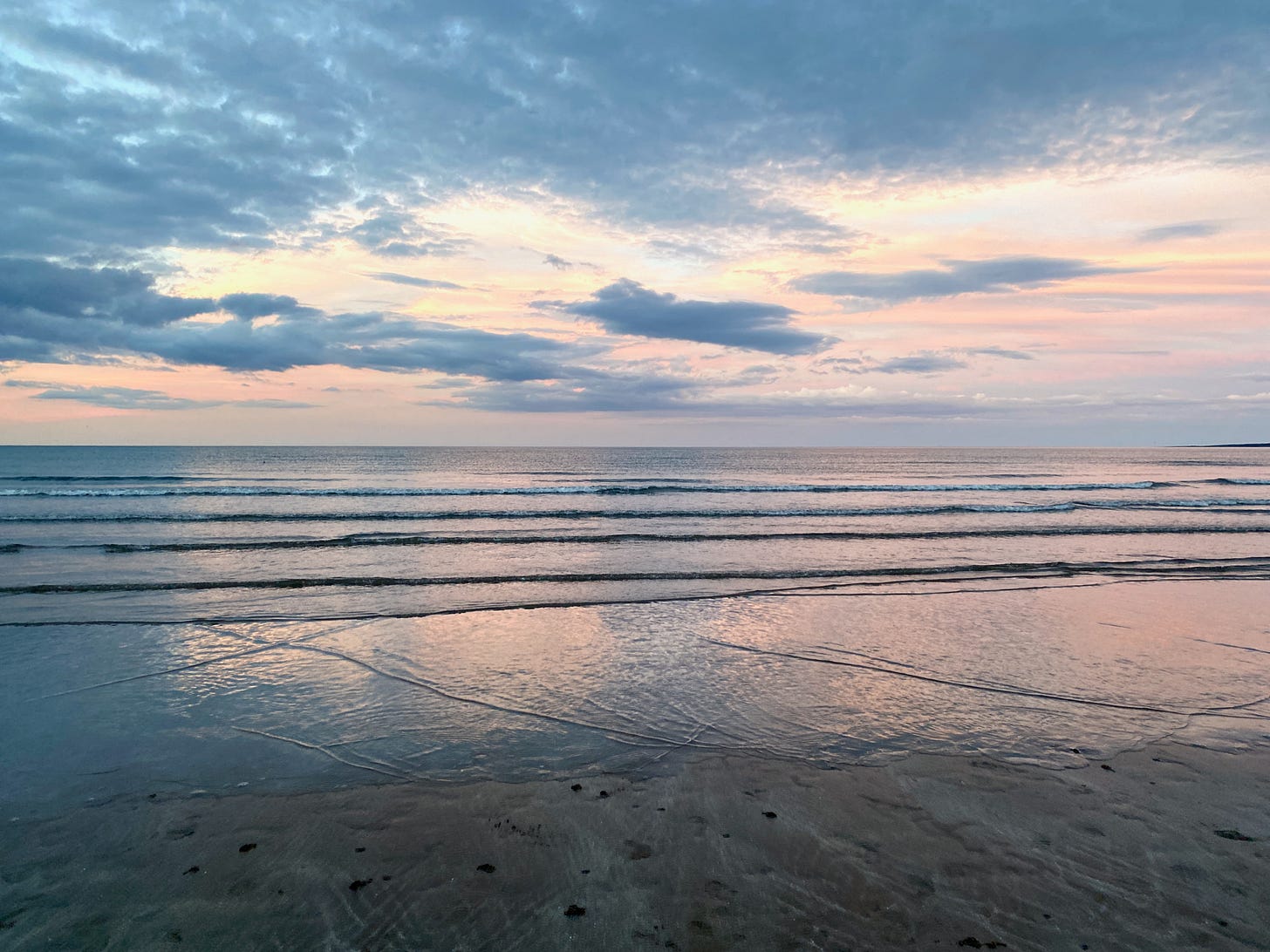
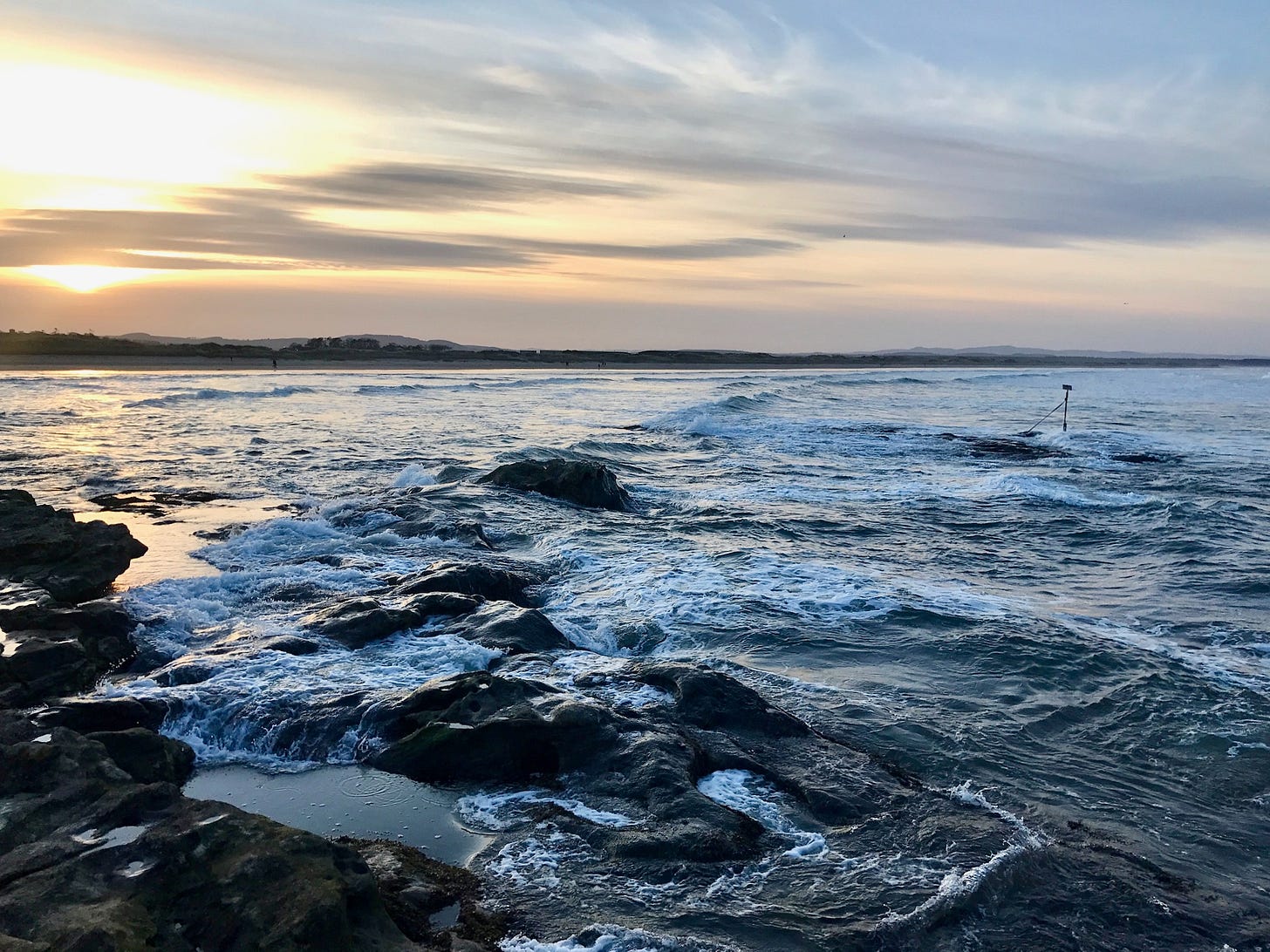
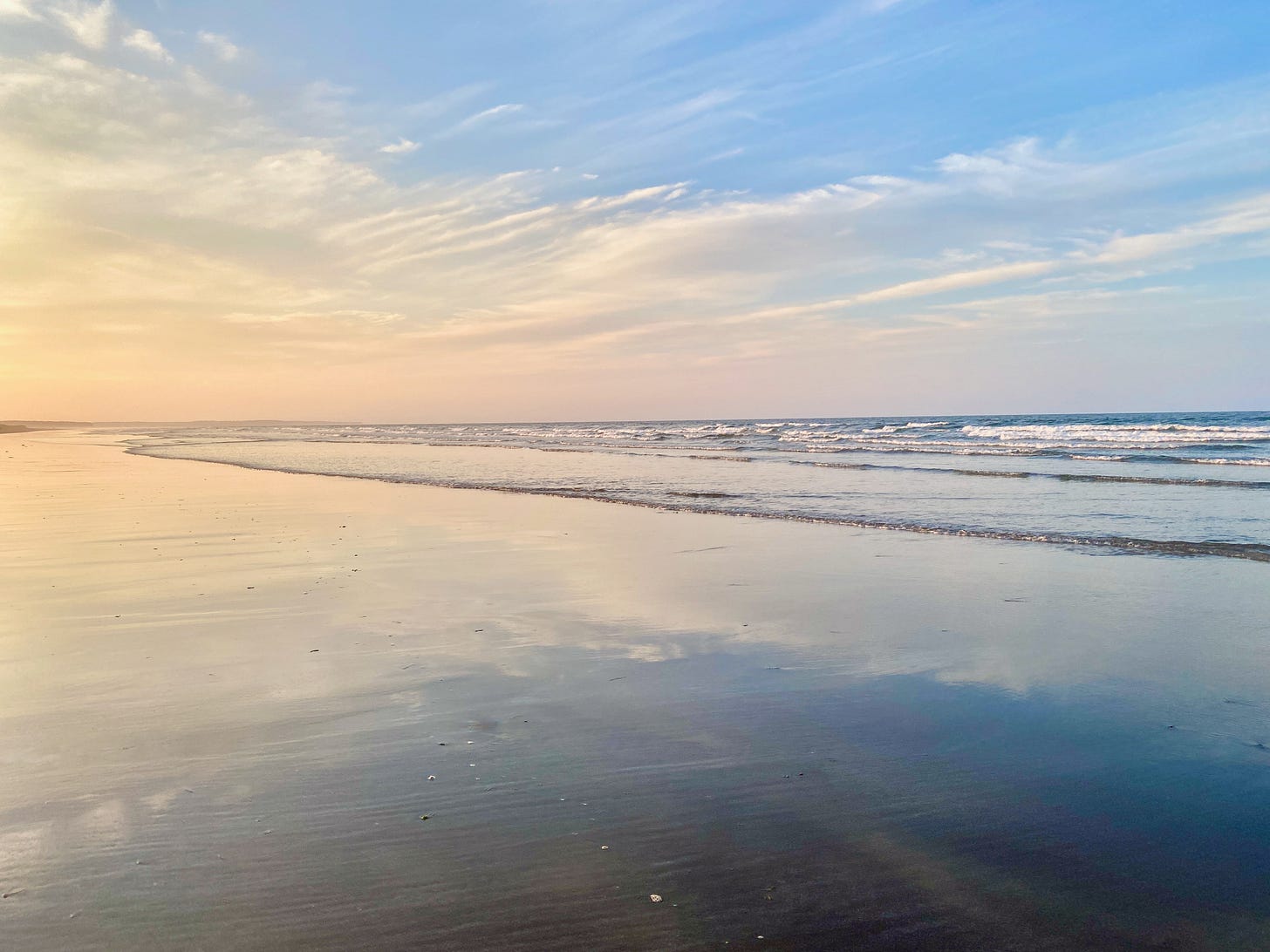
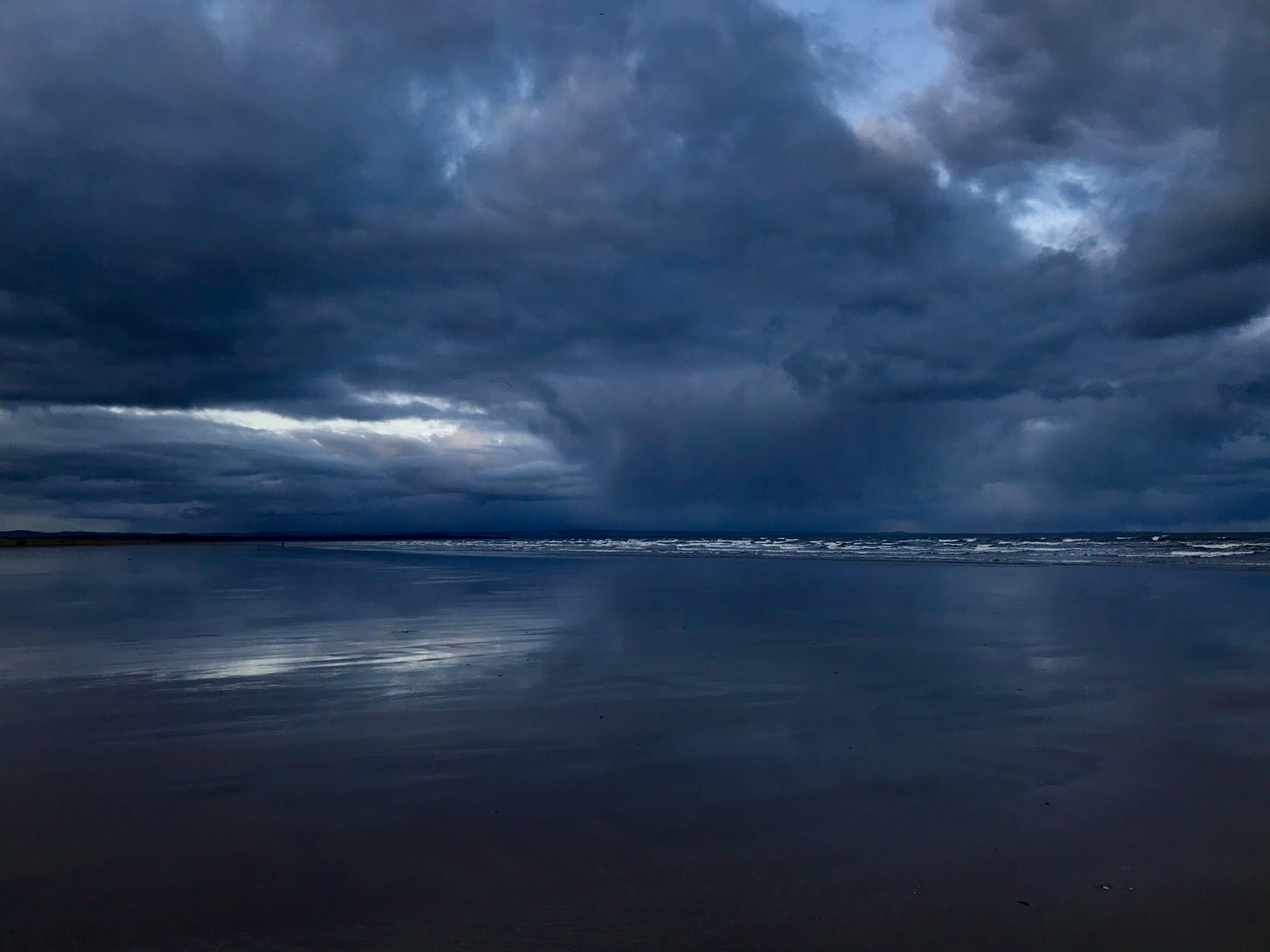
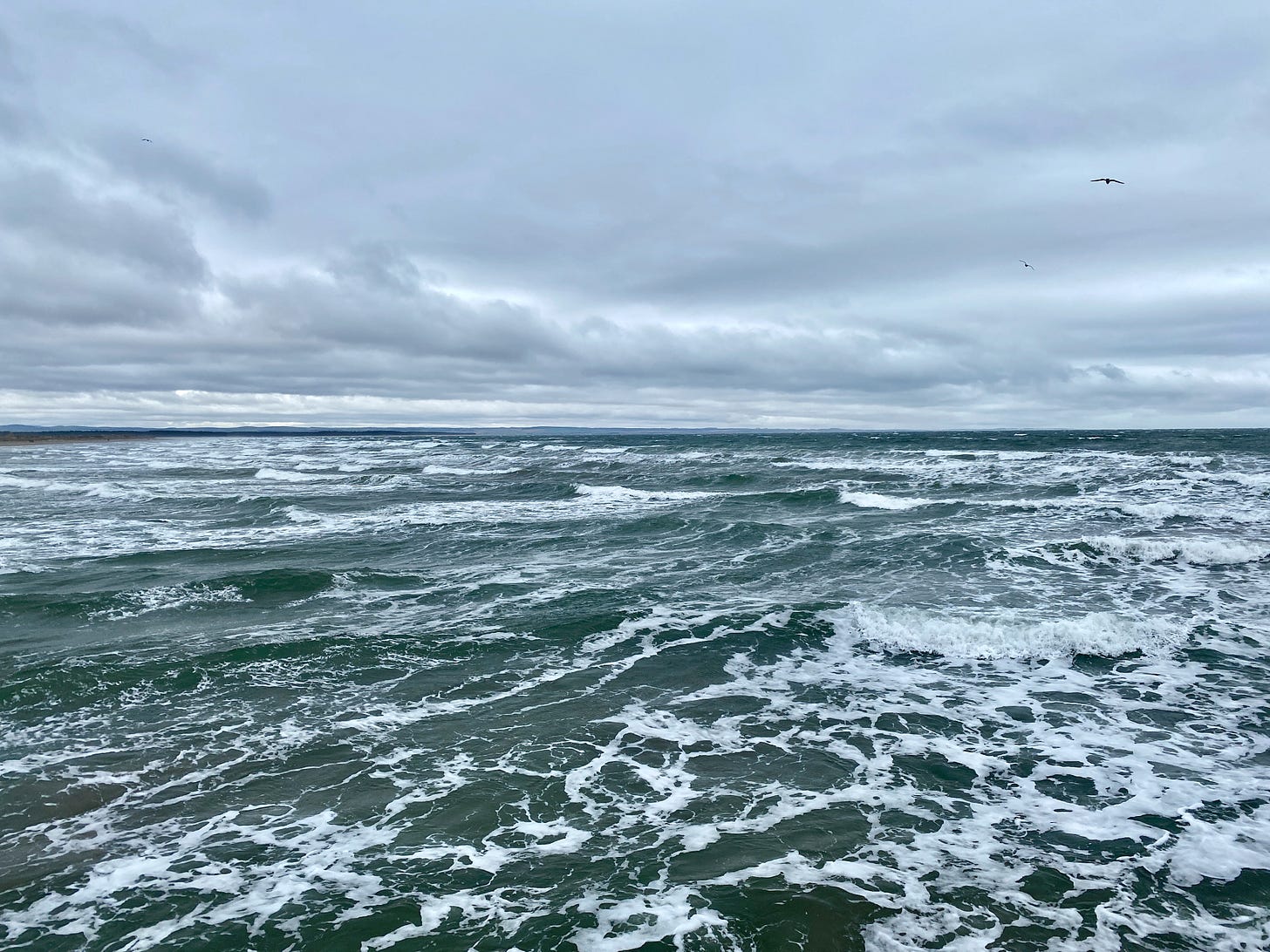
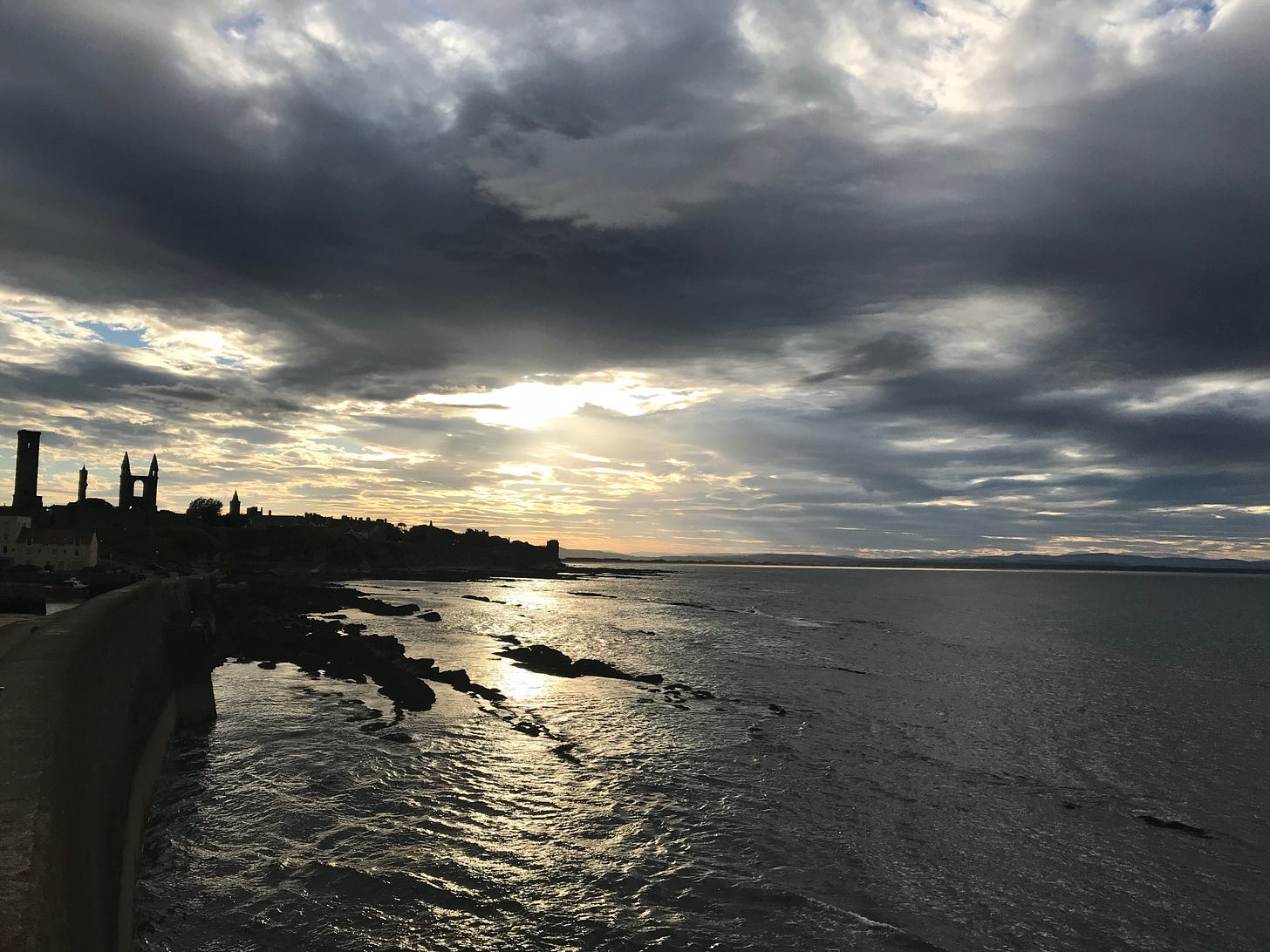
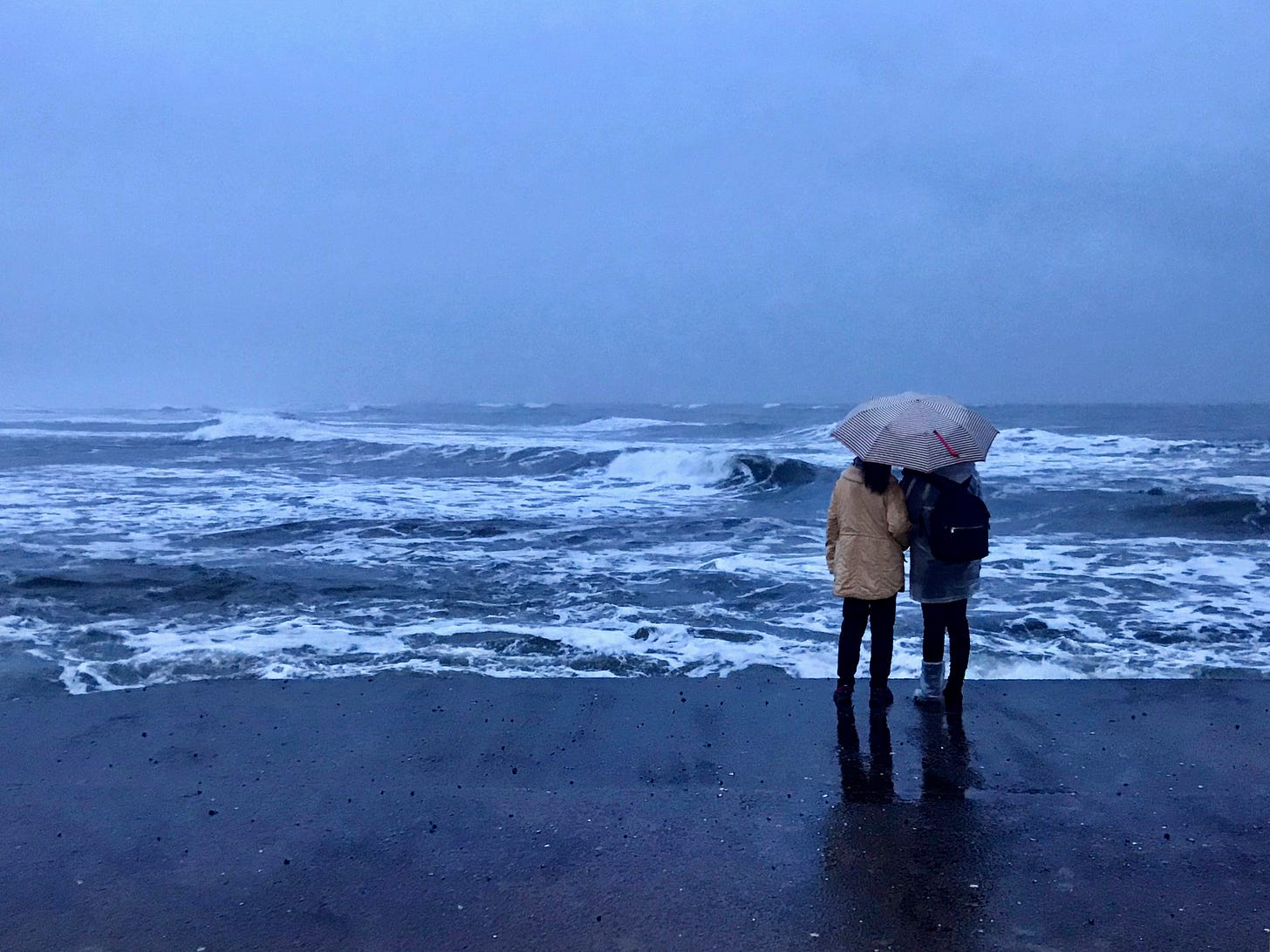
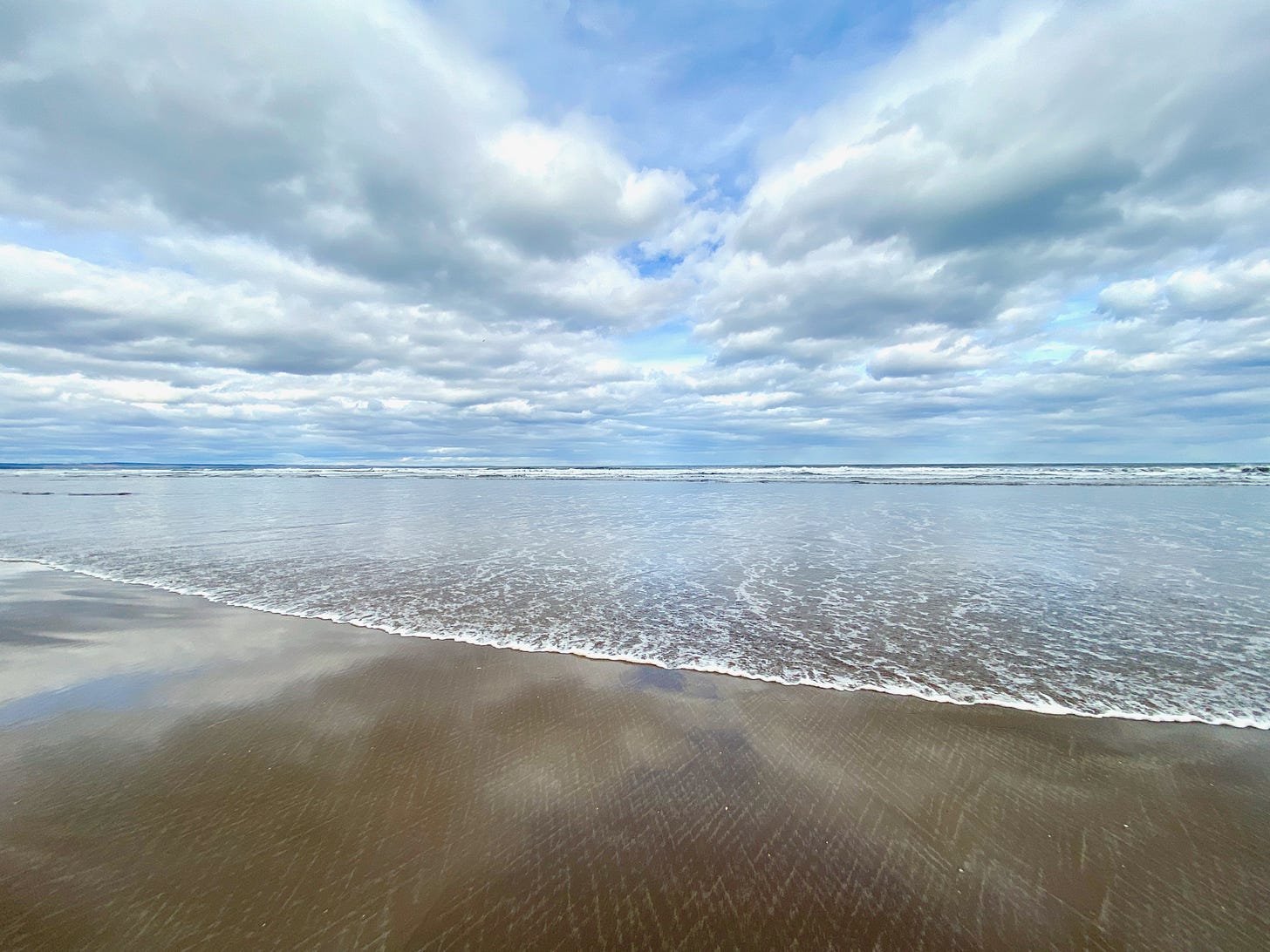

Such a beautiful post with gorgeous pictures and relaxing ocean videos, not to mention the really lovely musical arrangement. Thank you for sharing.